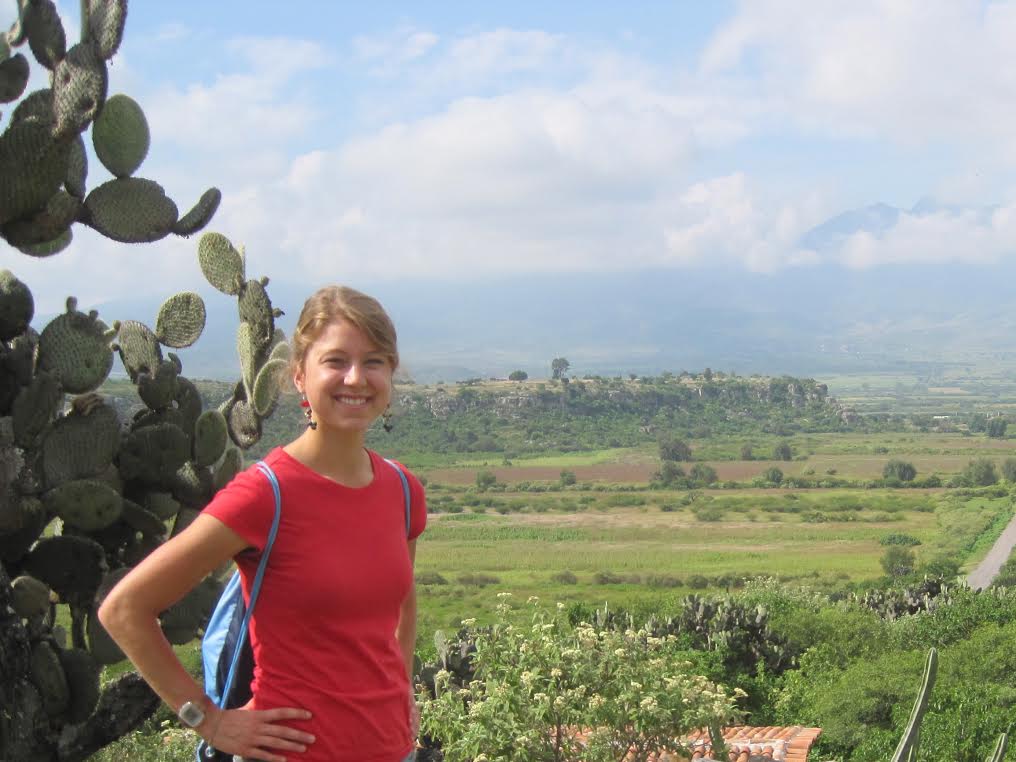
Seanna Hewitt
Graduation Year: 2014
Location: Oaxaca, Mexico
Project Title: Qualitative Analysis of Water-Related Issues in the Rio Verde-Atoyac Watershed and Investigation of Alternative Technologies for Water Conservation
Brief Summary of Research Project:
The Central Valleys of Oaxaca, like many other parts of the world, face an impending water crisis that stems from a variety of factors, ranging from environmental changes to the lack of planned urban development.
The Rio Verde-Atoyac Watershed encompasses almost a quarter of the state of Oaxaca and is home to many communities that face problems such as contamination of rivers and streams, water shortages, and drainage issues, to name a few. The severe impacts to health, the environment, and the economy that result from the water crisis, both directly and indirectly, necessitate investigation of the problems at hand, their root causes, and possible solutions that could be implemented to solve these problems.
For my project, I conducted an investigation of the water-related issues faced by communities in Oaxaca’s Rio-Verde Atoyac Watershed. I also studied the science behind various water-conservation technologies that are currently being developed in Oaxaca to combat these issues.
The research I did was a continuation of an investigation that I began with the Institute of Nature and Society of Oaxaca (INSO) during an internship with the organization in December of 2012. The analysis of qualitative surveys allowed for the identification of the most prominent water problems in the Central Valleys, as well as the types of solutions that were seen as feasible by members of each individual community. This, in turn, provides foundations from which INSO advances it’s collaborative work with the local people.
I also made trips to INSO’s model ecological site, the Pedregal, where the organization develops and improves alternative technologies for water conservation and purification including: ecological stoves, rainwater collection basins, and sustainable agricultural strategies, to name a few. I had the opportunity to work at this site on a variety of projects ranging from earthworm composting to the construction of an ecological bathroom. Since new technologies are continually being developed and improved, the Pedregal provided a great opportunity to investigate the science behind these technologies, as well as to observe their practical applications.
Advice to future Wang Grant applicants and/or recipients:
Be flexible and open to changes as your project progresses. This is important to keep in mind, both as an applicant and a recipient of the Wang Grant. While your proposed project might sound perfect on paper, it will most likely not unfold exactly as planned—which is completely okay! Deviations from “the plan” can be opportunities for some great learning experiences, too. This being said, to avoid hitting a complete dead-end with a project that you know is going to be challenging to complete, consider thinking about some of the potential directions that your research could take when you are drafting your proposal. For example, I primarily wanted to focus on the analysis of the water survey data, but if for some reason that had fallen through, I still had the option of volunteering at the Pedregal and learning about the applications of water-saving technologies. Leaving a little wiggle room in your Grant proposal for unexpected changes can only work in your favor.
How the Wang Grant has helped me academically or personally:
Through doing research in Oaxaca, I developed life-long friendships and unforgettable memories. I’m already planning trip number three! In addition to the wonderful connections that I made with my host family, friends from the nearby language school, and the staff at INSO, I also further realized my interest in sustainable agriculture, which I have since grown passionate about. The water theme worked it’s way into my Hispanic Studies Capstone, entitled Narrative Representations of the Oaxacan Water Crisis: An Ecocritical Analysis of “Aguas zarcas,” by Israel Castellanos and “Río salado,” by Víctor Vásquez Quintas. It is also central to my Biology capstone paper, which explores the genetic and physiological mechanisms underlying flood tolerance in rice. The Wang Grant, and the work I was able to do because of it, really closed the gap between these two areas of study. Most importantly it has inspired me to continue to travel, learn all that I can, and help when help is wanted.



Social Media